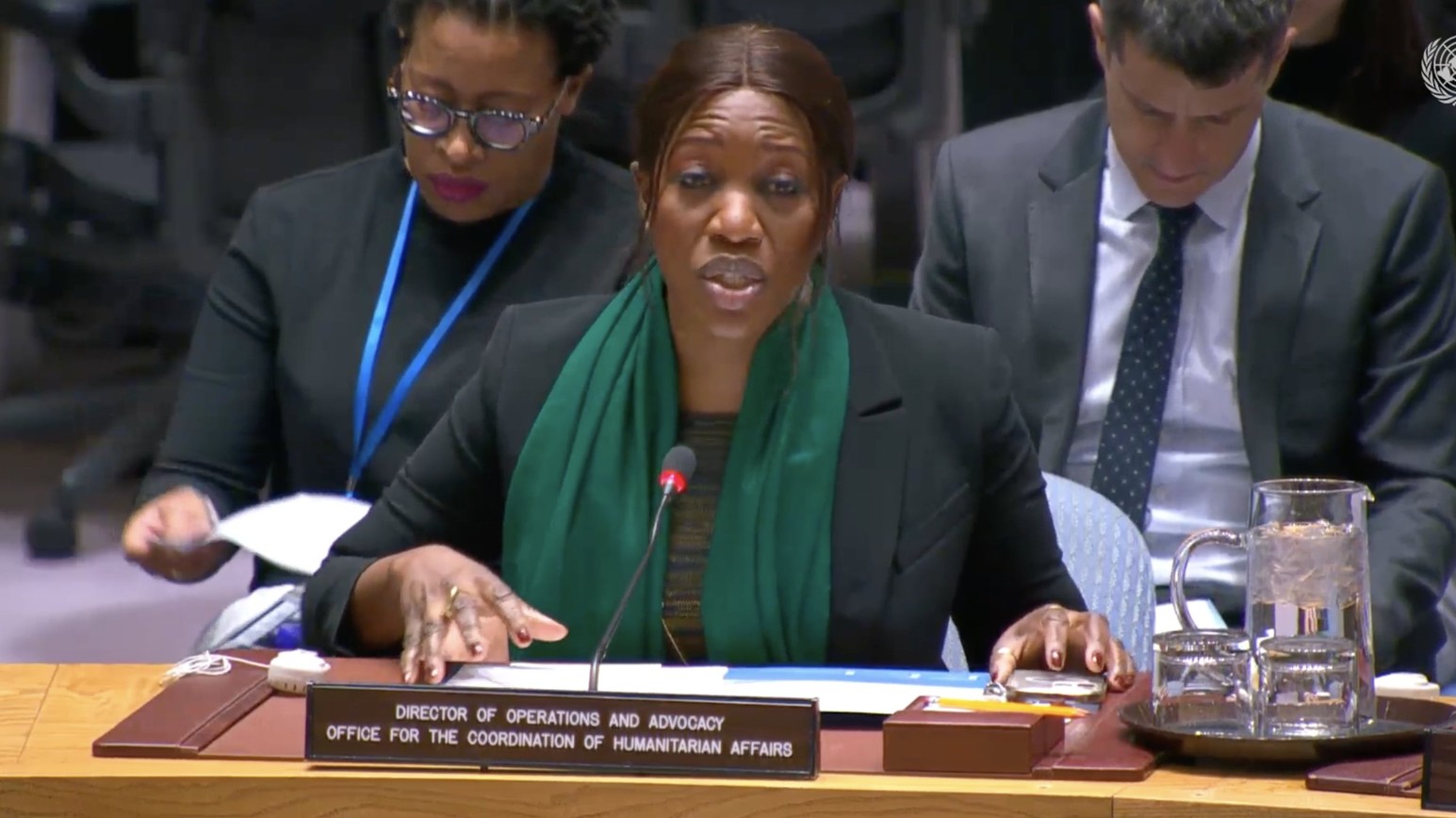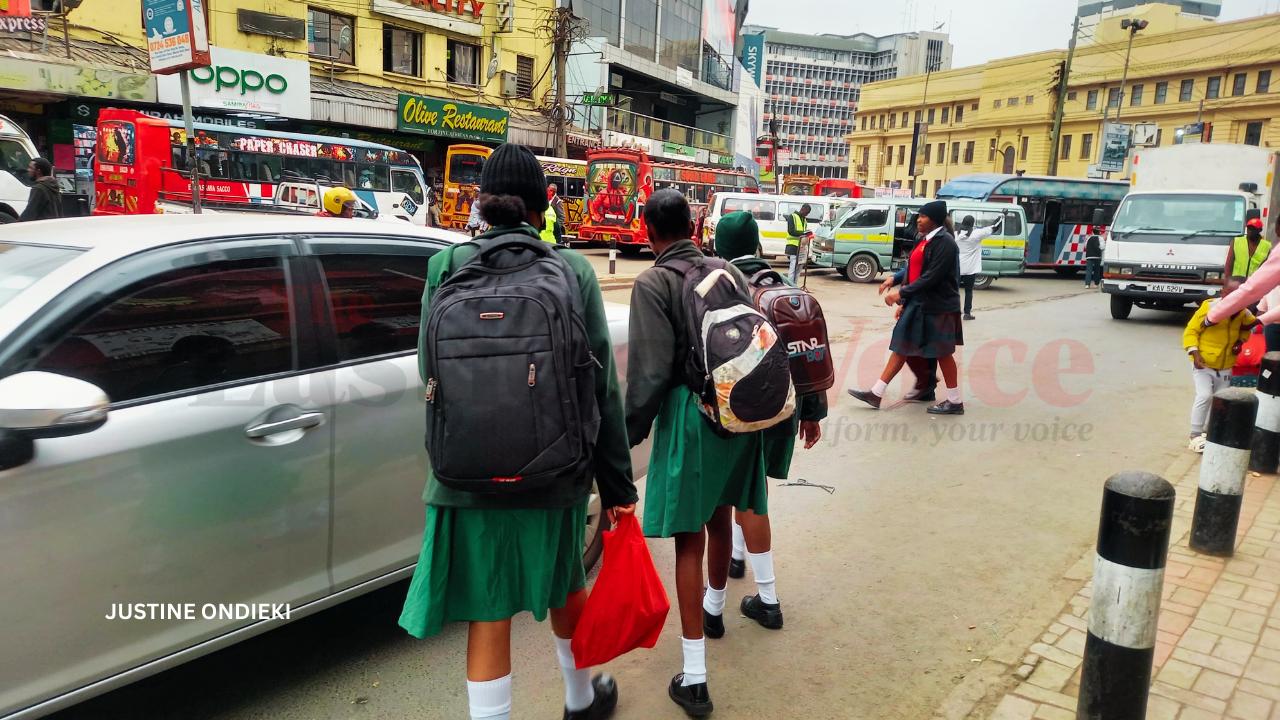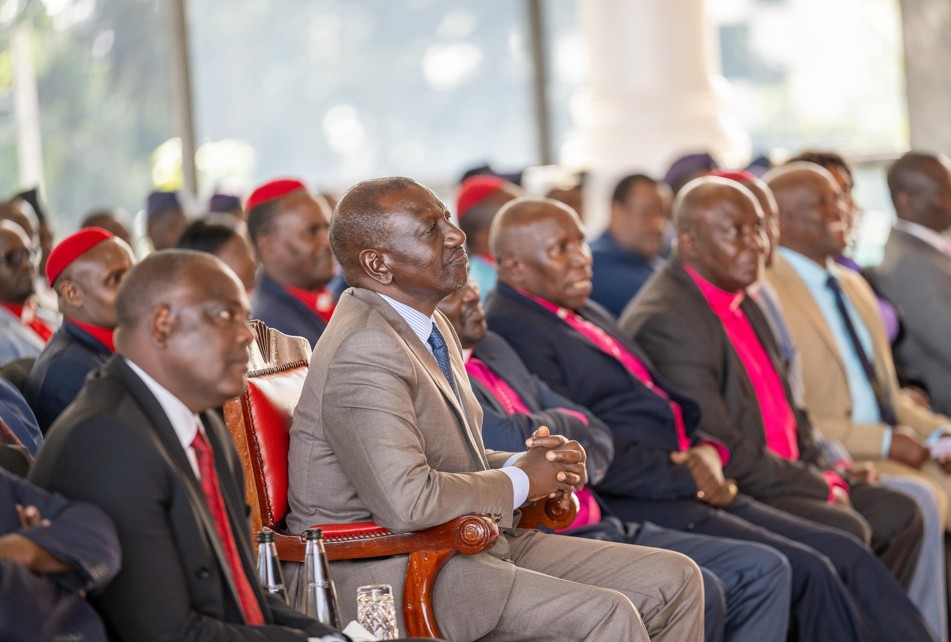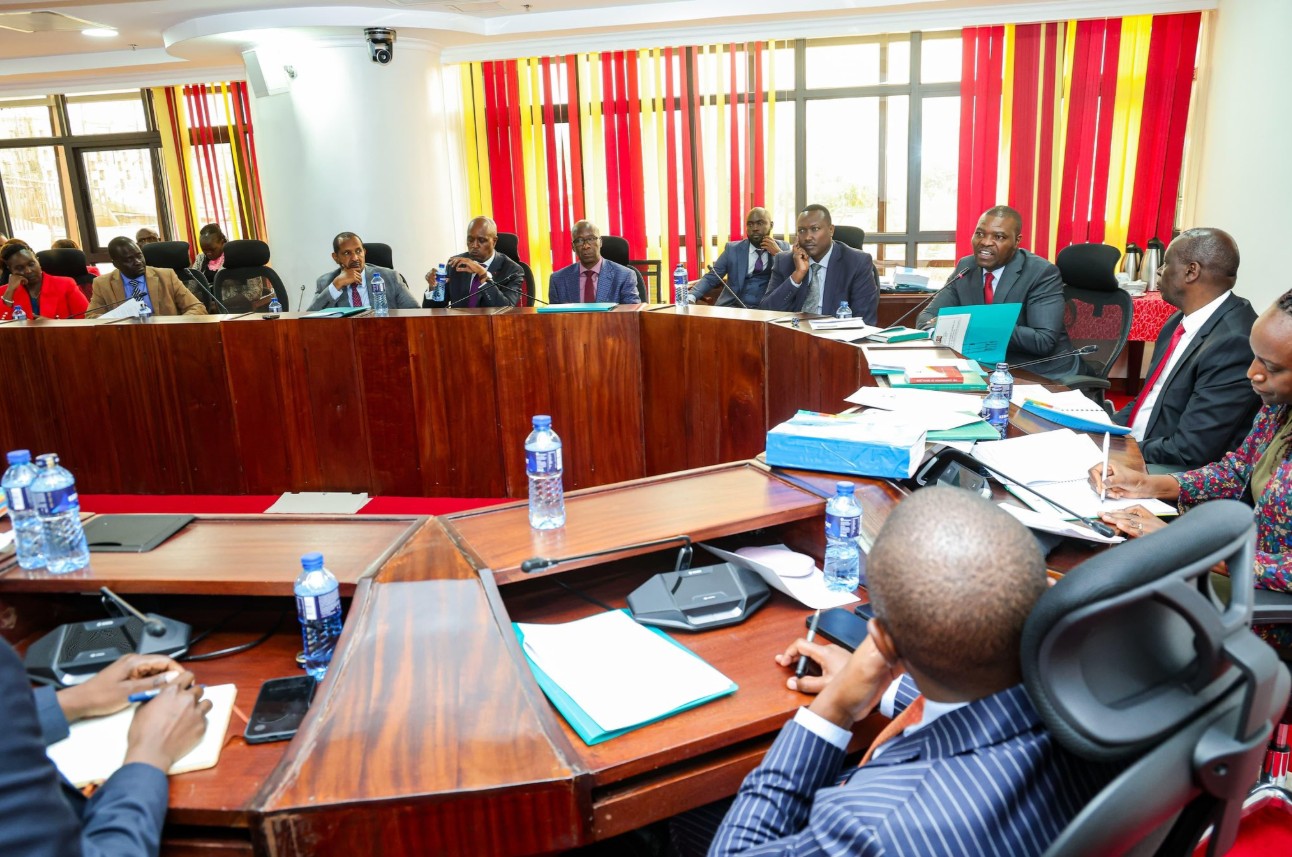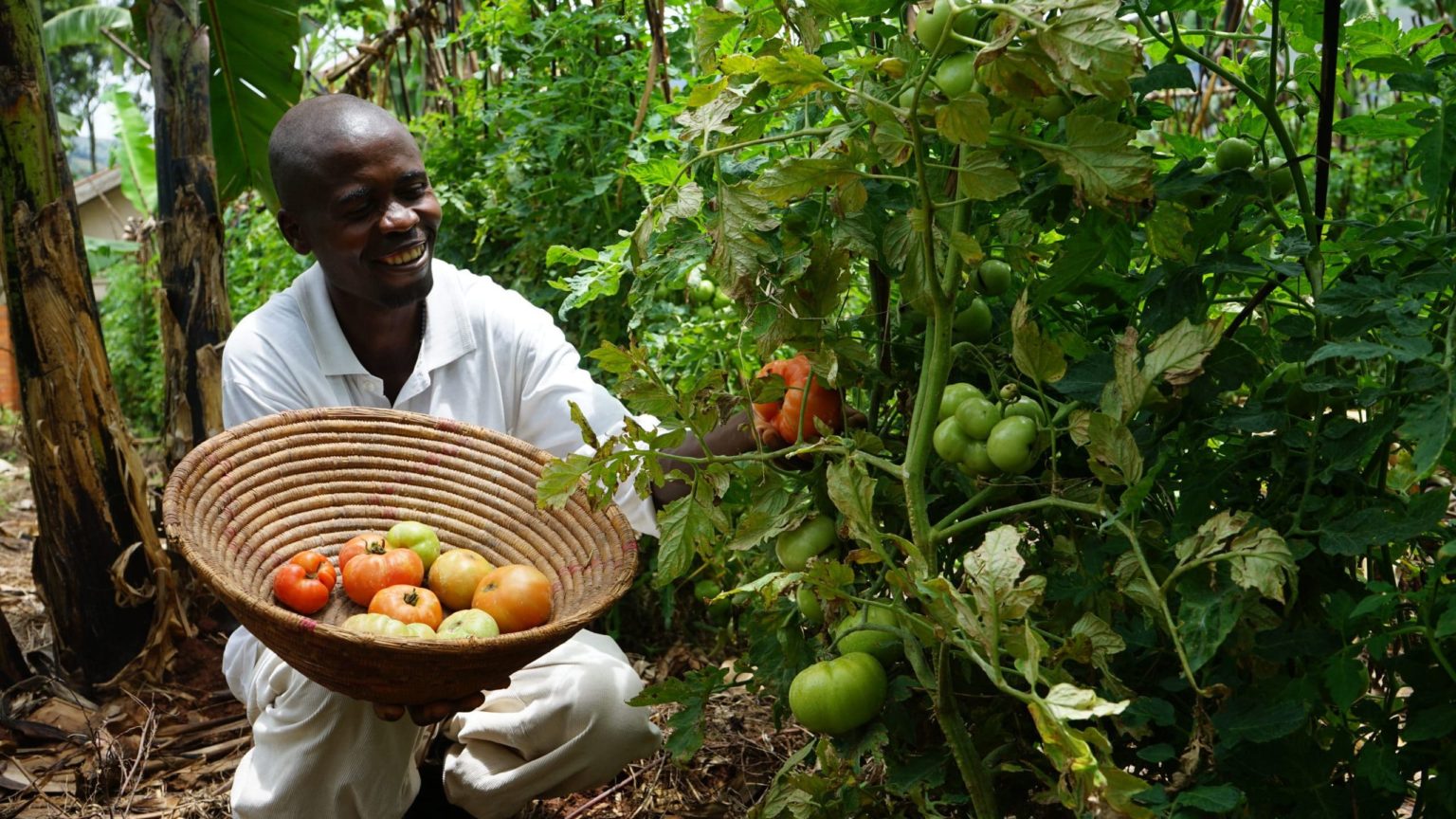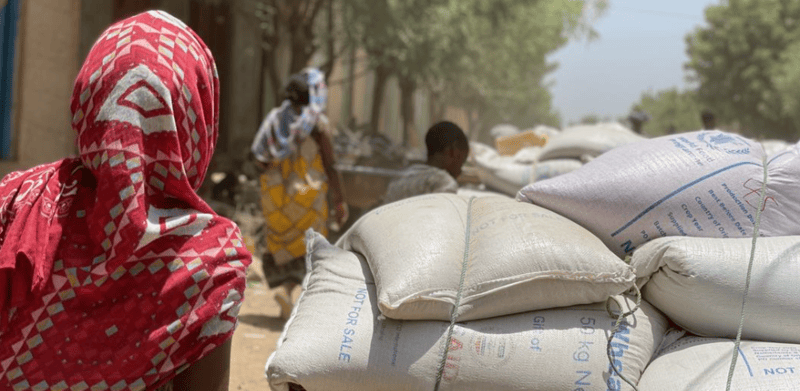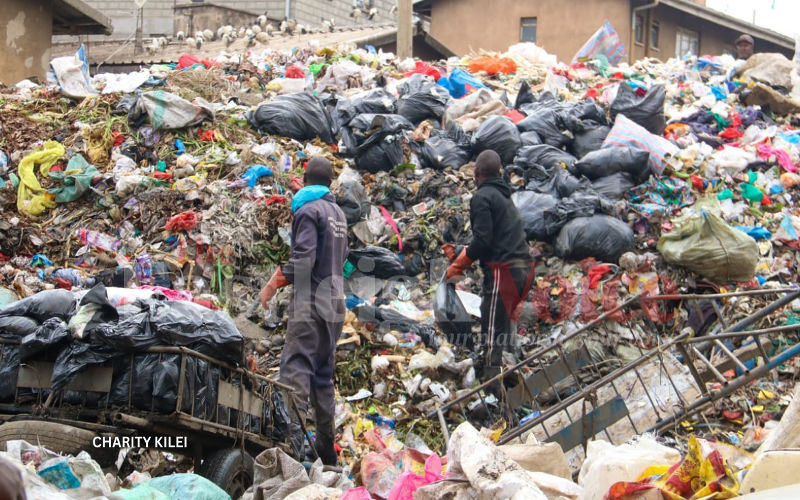World Water Day: Shortages intensify in Nairobi slums, posing hygiene risks
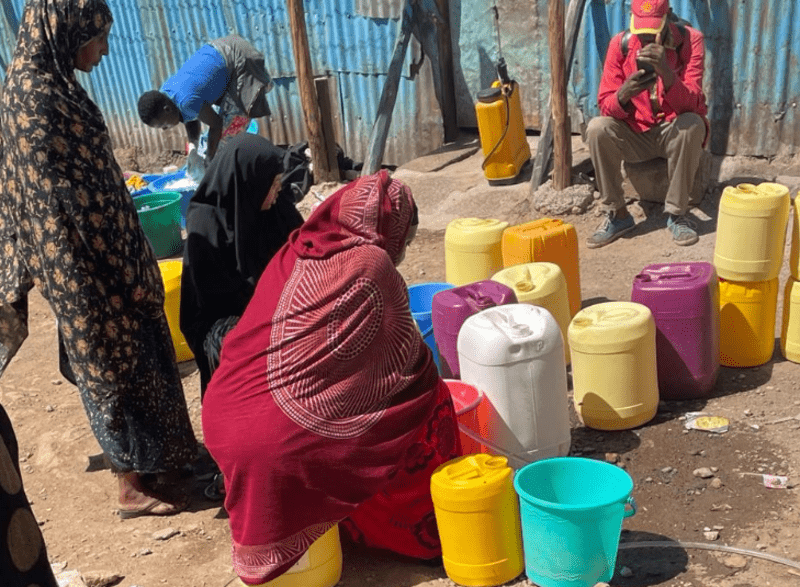
Residents of Eastleigh are also facing a daunting challenge as the scarcity of water continues to plague the area, especially during the holy month of Ramadan.
As the world commemorates Water Day, Nairobi slum areas continue to grapple with water crises. The slum areas, marked by overcrowded living conditions and inadequate infrastructure, face intensified challenges due to recent water rationing and scarcity.
Most slum residents rely on communal taps even as the shortage bites, leaving many at risk of contaminated water.
More To Read
- From desert to dessert: The journey of dates to Kenyan tables
- Property worth millions destroyed as fire razes shops at Yare Business Park in Eastleigh
- MP Yusuf Hassan pledges to protect public land as intruders break into Maina Wanjigi in attempt to grab land
- Best biriyani in Eastleigh: Esli Hub Restaurant at Yare Towers delivers a flavour explosion
- Residents of Eastleigh’s Seventh Street demand urgent road repairs
- Court hears how police surveillance systems tracked suspects in Ahmed Rashid murder case
Mulki Issack, a resident of Korogocho slums, describes the struggle of accessing water only on Thursdays and Fridays. "We are faced with hygiene and health challenges because of the water shortage. Chaos ensues each Thursday morning as residents scramble to fetch water," she says.
"We buy the water at Sh20 for a 20 liter-jerican and before, we used to buy the same quantity at Sh5. The water, however, is not enough to cater for our household chores," she adds.
Similarly, residents of Kiamaiko face limited water access on Mondays and Tuesdays, impacting businesses like David Kariuki's car wash.
"Our car wash business, which entirely depends on water, has been affected. We used to get water every day but now it's just twice a week. To stay in business and live up to our customers' expectations, we are forced to buy water on the days when the taps are dry. We buy 15,000 liters of water a week to keep the business running, which has messed up our profits and daily livelihood," says Kariuki.
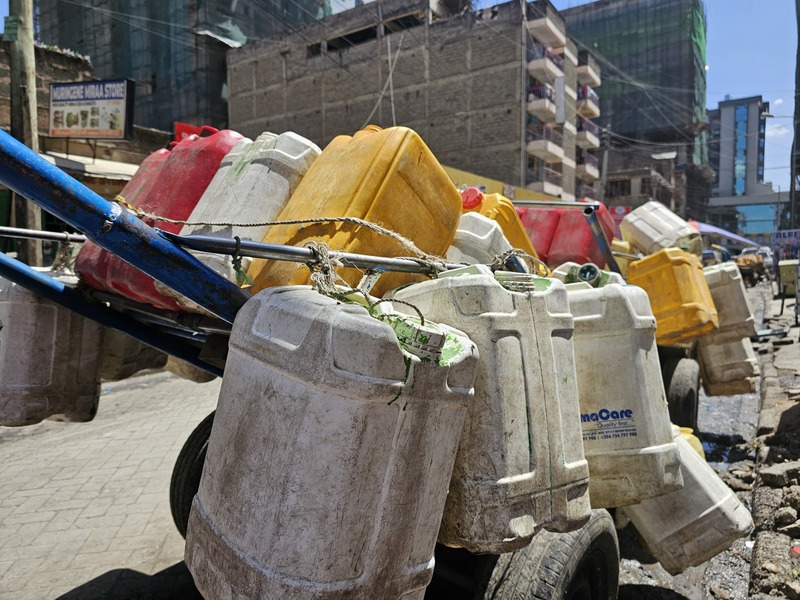 A Water vendor displays 20-liter jerricans full of water along Eastleigh's 11th Street. (Photo: Abdirahman Khalif)
A Water vendor displays 20-liter jerricans full of water along Eastleigh's 11th Street. (Photo: Abdirahman Khalif)
Meanwhile, water vendor Shadrack Athmani reflects on the challenges of maintaining his business amidst water scarcity, emphasizing the need for sustainable solutions to address these pressing issues.
"I've been in this business for over a decade, and each year presented new challenges. The situation worsened with the onset of water rationing, limiting access to just Mondays. My water supply business suffered greatly; lacking storage facilities and funds for a proper water tank, it started crumbling. However, I managed to revive it last year after saving up enough to purchase the necessary equipment," explains Shadrack.
Booming business
Residents of Eastleigh are also facing a daunting challenge as the scarcity of water continues to plague the area, especially during the holy month of Ramadan. With dry taps becoming a common sight, residents are increasingly turning to water vendors.
Esther Wangare, a water vendor operating on Eastleigh's 11th Street, sheds light on the soaring demand for water. "Demand is high, the dry taps are a blessing to us," she remarked, highlighting that water vendors are making a killing following the scarcity.
Wangare's sentiments echo those of many vendors who have witnessed a surge in business due to the water shortage.
The reliance on water vendors comes at a high cost, with a 20-liter jerrican now costing at least Sh50, a price that is significantly higher compared to other areas of Nairobi where the same quantity of water can be acquired for as little as Sh20.
Given the large size of families in Eastleigh, where daily consumption can easily surpass 12 jerricans per household, the financial burden on residents is exacerbated.
The proliferation of water vendors has also led to an increase in the number of water bowser operators who cater to the needs of large residential areas, sometimes even operating as late as 1 am.
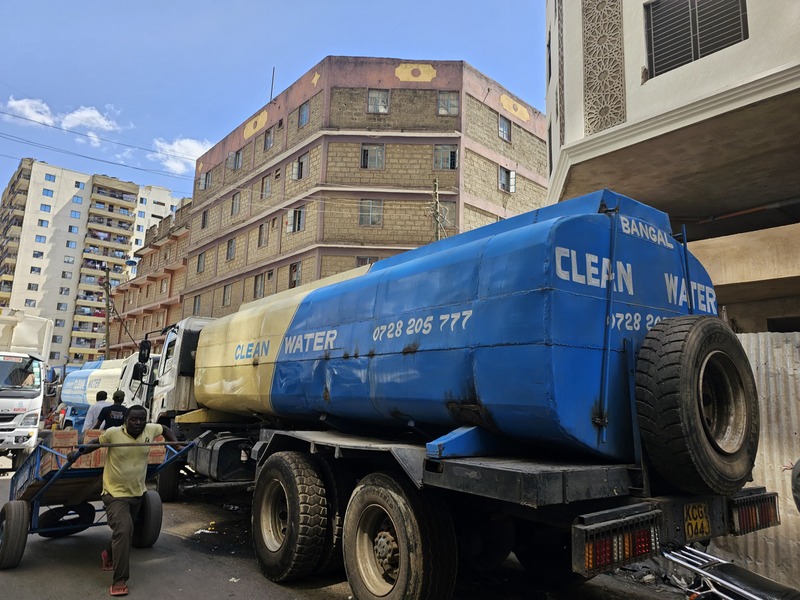 Water bowser supplying water at a building on Timboroa Street in California. (Photo: Abdirahman Khalif)
Water bowser supplying water at a building on Timboroa Street in California. (Photo: Abdirahman Khalif)
However, this surge in demand has not been without its consequences, as competition among water bowser operators has occasionally turned violent, as evidenced by recent incidents of conflict resulting in fatalities.
Earlier this year, a manager of a water distribution company was tragically killed by his colleagues in a dispute over water supply in Eastleigh. Similarly, in September 2023, a disagreement over water distribution led to the death of a 51-year-old man, further underscoring the gravity of the situation.
Eastleigh Business District Association Chairman Ahmed Abdullahi said earlier this month that there will be increased water supply during Ramadan.
The Nairobi City Water and Sewerage Company's capacity to meet the water demands of the rapidly growing population remains inadequate, as said by Kamukunji MP Yusuf Hassan, who emphasized that the issue of water scarcity is not unique to Eastleigh but is a city-wide concern affecting millions of residents.
"The water problem is not just in Eastleigh. It's all over Nairobi. The 525,000 cubic meters of water Nairobi receives is not enough," he said last month.
In response to the water shortage, some mosques in Eastleigh have been forced to close their ablution areas sometimes, disrupting religious practices during Ramadan. Additionally, desperate residents have resorted to borehole drilling as an alternative source of water, albeit at a considerable cost and with concerns about the cleanliness of the water obtained.
The Nairobi City Water and Sewerage Company has statistics on the volume of water available for consumption in Nairobi and the significant gap between supply and demand.
Nairobi's current water demand is 810 million liters per day, while the supply is only 550 million liters per day, resulting in a daily deficit of 325 million liters.
Factors contributing to Nairobi's water scarcity include population growth, leakages due to old infrastructure and pipe interference, illegal connections, vandalism, and catchment degradation.
Top Stories Today
Reader Comments
Trending



